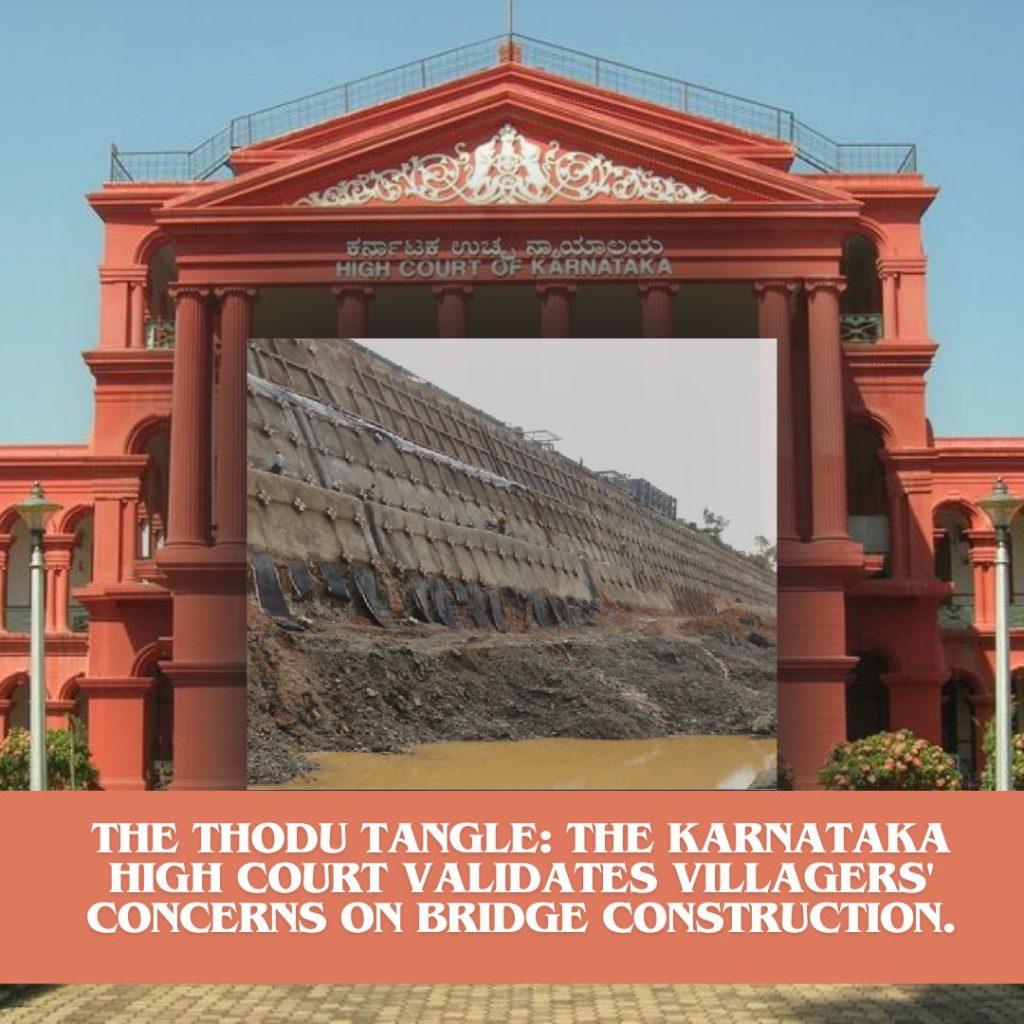Samad A.A. & Ors. v. State of Karnataka & Ors.
Writ Appeal No.: 636 OF 2024
Court: High Court of Karnataka.
Coram: Hon’ble J. B.M. Shyam Prasad, J. T.G. Shivashankare Gowda.
The High Court of Karnataka delivered a judgment on May 2, 2024, on a writ appeal filed against an interim order dated 18.03. 2024. The interim order directed the Deputy Commissioner of Madikeri to remove a concrete road constructed on a thodu within four weeks.
FACTS OF THE CASE
The appellants are the residents of Mugatageri village in Kodagu District. A concrete road has been put up on the thodu (a small stream or water channel) in their locality, which might have resulted in the stagnation of water. The initial petition was filed by Sri K.K. Deepak against various state officials and local authorities responsible for the construction and maintenance of the road. After this, there were directions to remove the concrete road, but actions were yet to be taken due to the election.
LEGAL ISSUES
- Whether the appellant’s rights would be affected by the implementation of the interim order directing the removal of the concrete land?
- Whether the appellants should have been impleaded as parties in the writ petition before passing the interim order?
LEGAL PROVISIONS
- Section 4 of the Karnataka High Court Act, 1961, under which the appeal was filed.
- Rule 27 of the Writ Proceedings Rules, 1977, states that a certiorari writ petition must include certified or authenticated copies of the order to be quashed and, if applicable, copies of orders from all involved authorities.
- Additionally, the case involves principles under environmental protection laws concerning water bodies.
CONTENTIONS BY THE APPELLANTS
The learned counsel for the appellants contended that the implementation of the interim order directing the removal of the concrete road would affect their rights as they were not made parties to the original writ petition. Thus, their rights and interests were only considered after passing the interim order. The petitioners argued that the construction of concrete roads over thodu may have led to significant water stagnation, affecting the local land properties. They also contended that despite the direction of the Tahsildar, the Panchayat Development Officer, to remove the concrete road, no action was taken.
CONTENTIONS BY THE RESPONDENTS
The learned Additional Government Advocate, representing the respondents, submitted that the interim order could not be implemented due to the elections during the time of order. However, he did not oppose the appellant’s contention that they should have been included and heard before passing the interim order to address their concerns appropriately.
ANALYSIS OF THE JUDGEMENT
The Hon’ble High Court recognized the environmental issues resulting from the construction of the road over the thodu. It observed that the grievances of the appellants regarding the interim order and their concerns were valid as they were not given an opportunity to present their case in the original writ proceedings. The Court acknowledged the delay due to elections and deemed it necessary to provide the appellants an opportunity to file the applications.
CONCLUSION
The case above is an example of the importance given to the principles of natural justice by the courts. The courts allowed the appellants to be heard before the implementation of an order that might affect their rights. This case highlights the necessity of ensuring that all parties are heard in judicial proceedings. It also underscores the importance of maintaining natural environments and addressing the impact of infrastructure projects on the environment.
Judgement reviewed by Maria Therese Syriac.


